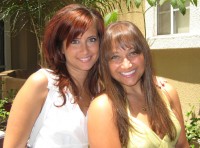Robin Schiff and Winnie Holzman’s great discussion series “Anatomy of a Script” is [starting up again](http://wgfoundation.org/aos.aspx) in March, and highly recommended for film and TV writers wanting to learn more about the craft.
Each session starts with a screening of the film or TV episode, followed by a discussion with the writer. I did one last year for Big Fish, and really enjoyed the questions from such a smart audience.
The guests this year look great:
March 13: **Mike White** on *Enlightened*
March 21: **Russell Gewirtz** on *Inside Man*
March 28: **Alex Gansa & Howard Gordon** on *Homeland*
April 4: **Lisa Kudrow and Michael Patrick King** on *The Comeback*
April 11: **Mike Mills** on *Beginners*
April 18: **Florian Henckel von Donnersmarck** on *The Lives of Others*
You can [buy tickets](http://wgfoundation.org/aos.aspx) for individual sessions, or the whole series. Proceeds benefit the Writers Guild Foundation.
 In 2007, I moved from New York City to Los Angeles to pursue a screenwriting career. I did it by way of the Peter Stark Producing Program at USC, where I was fortunate to meet some of my very best friends.
In 2007, I moved from New York City to Los Angeles to pursue a screenwriting career. I did it by way of the Peter Stark Producing Program at USC, where I was fortunate to meet some of my very best friends.  My name is John Ratchford. I’m a 27-year-old Australian writer, currently living in London. I’ve sold one script and had another optioned, but I consider myself a beginning writer. On Twitter, I’m @johnhratchford.
My name is John Ratchford. I’m a 27-year-old Australian writer, currently living in London. I’ve sold one script and had another optioned, but I consider myself a beginning writer. On Twitter, I’m @johnhratchford.